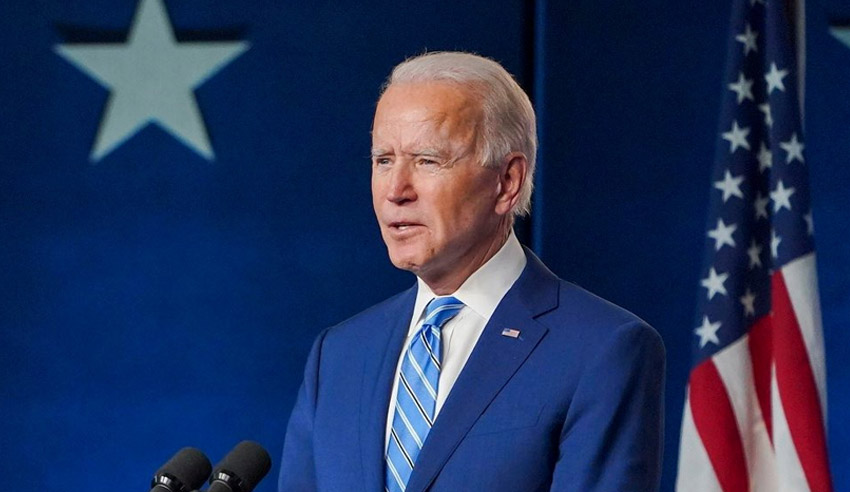Should the Biden administration reverse his predecessor’s decision to exit the Trans-Pacific Partnership, Australian lawyers will need to work closely with their clients and adopt a global mindset, says one leading partner.

Competition and economic regulation partner Donald Robertson – who was announced earlier this week as the newest partner at Dentons, after 34 years at rival global firm Herbert Smith Freehills – believes that US President Joe Biden will reverse former president Donald Trump’s decision to exit the landmark TPP agreement.
Why Biden may rejoin the TPP
There are three issues at play, Mr Robertson detailed, that give rise to a deduction that the Biden administration will go back on the Trump exit from the TPP.
In the wake of Brexit, he said, the UK is seeking trading friends.
“They have formally applied to join the Comprehensive and Progressive Trans-Pacific Partnership and will almost certainly succeed, despite having no Pacific shoreline. The USA, having pulled out of the TPP as part of the isolationist tendencies of the Trump administration, is seeking to prove its loyalties to its historic allies. It may rejoin, although the opposing political forces in the USA weigh heavily on any foreign policy decision,” he said.
Secondly, Mr Robertson said that the “original economic forces” in favour of such mega-regional agreements still exist, even in the wake of the COVID-19 pandemic.
“Those forces concern the nature of global value chains. Production occurs in regional clusters and value chains. These value chains constitute the ‘second great unbundling’ in which there is a fragmentation – ‘offshoring’ – of the production process. This fragmentation results in clusters of production activity,” he said.
Finally, Mr Robertson noted, there are geopolitical forces that are pushing the US to re-engage with its allies in the Asia-Pacific region to counter a China asserting its rights in this region.
“There is increasing cooperation among the Asia-Pacific countries, especially India, Japan and Australia. China is also engaging in the region and there is good reason for the USA to emulate them,” he said.
Each of these three matters, Mr Robertson surmised, is a factor in favour of the USA rejoining the TPP – “perhaps with qualifications, or perhaps (to avoid a domestic political fight) to modernise existing bilateral treaties”.
“Remember, they did stick with NAFTA, just with a change of name and some amendments. They seek to support allies who are standing up to a resurgent China. Their global value chains exist in an Asia-Pacific cluster, of which the US is the centre,” he said.
“The geopolitical forces are pushing the USA (no matter how reluctantly due to national political forces) to assert their presence in the region.”
The role of Australian lawyers
Such a reversal, Mr Robertson advised, will serve to emphasise the “transnational nature” of any economic activity and regulatory considerations whereby there is an increase in American presence in the region.
“One of the main things to know about the TPP is that it is not a free trade agreement. It is, at core, an international regulatory instrument dealing with the governance of markets and economic activity that occurs in global value chains clustered in the Asia-Pacific region. Hence, the TPP has important chapters on IP, e-commerce, telecommunications, labour, the environment, competition law, State-Owned Enterprises, and many more subjects,” he explained.
“Importantly, the TPP has a comprehensive and modern system of investor-state arbitration (designed to overcome many of the past criticisms of this mechanism) which gives investors the possibility of direct action before an impartial arbitral tribunal.”
When asked how best Australian lawyers can “re-engage and strengthen global cross-border links”, Mr Robertson said that they need to remain close to their clients.
“Their clients are the ones who operate in multiple jurisdictions, with their value chains stretching across the region and globally. They know the risks and issues involved in operating in several jurisdictions with potentially conflicting regulatory regimes,” he mused.
“The old lesson is still the true lesson – know your client.”
It will, however, be challenging to aid clients through such changes. To overcome this, Mr Robertson suggested, lawyers will require a “global mindset and global connections”.
“Lawyers need to be part of a global network, not necessarily a global firm. But they need to know the region and also know the new bodies of law that deal with cross-border and regional regulatory regimes. This body of law is sometimes called global administrative law, or just plain international commercial law.”
Furthermore, Mr Robertson added, lawyers and firms “need to introduce their regional colleagues to each other and work on matters with the regional and global issues in mind. This requires knowledge of the legal issues. They also need to be aware of, and support, the growing efforts to educate and harmonise the law in relation to cross-border transactions”.

Jerome Doraisamy is the managing editor of professional services (including Lawyers Weekly, HR Leader, Accountants Daily, and Accounting Times). He is also the author of The Wellness Doctrines book series, an admitted solicitor in New South Wales, and a board director of the Minds Count Foundation.
You can email Jerome at: